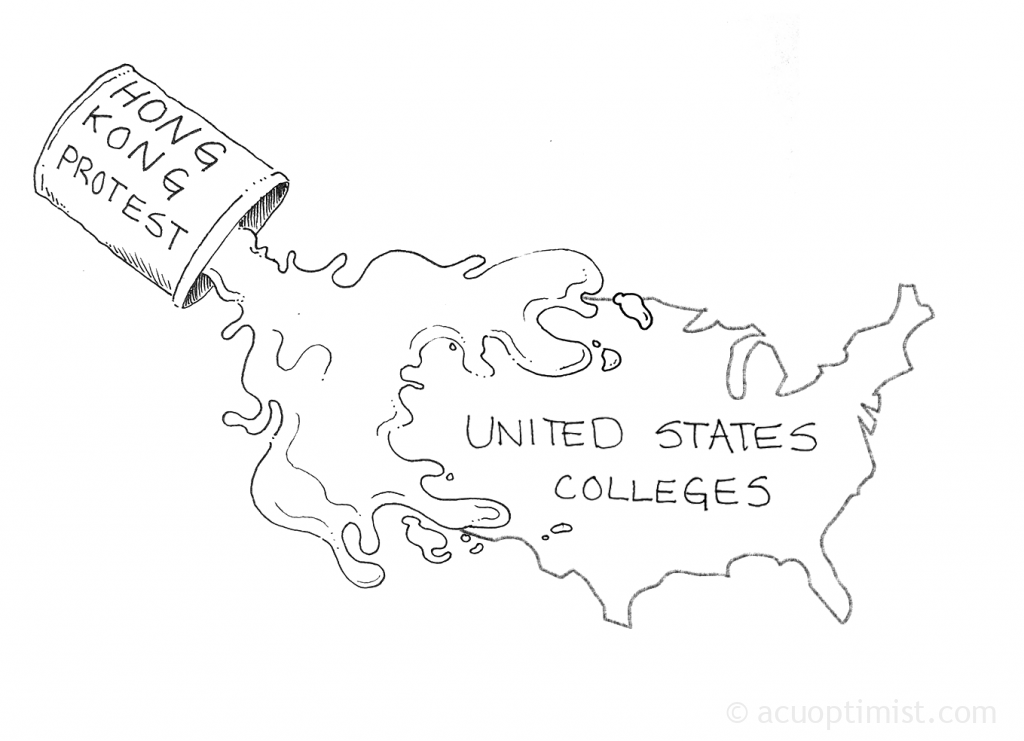In recent world news, Hong Kong protests regarding the extradition bill, beginning in April 2019, have spread to U.S. college campuses.
The extradition bill, also known as the Anti-Extradition Law Amendment Bill, would have allowed suspected criminals to be detained and extradited to areas like mainland China and Taiwan, with which Hong Kong does not have current extradition agreements with. Those against the bill argued that it would grant China greater power over Hong Kong and raised concerns for the freedom of activists and journalists.
The bill was suspended by Chief Executive of Hong Kong, Carrie Lam, in June and officially withdrawn in September. Protesters considered this action to be too little, too late. Protesters now are calling for the passage of the Hong Kong Human Rights and Democracy Act.
The reason the bill is a concern for Hong Kong is because Hong Kong was controlled by Great Britain until 1997. Since returning to Chinese rule, it still claims democratic ideas and the people claim more rights.
Hong Kong protesters still fear the bill could be revived, so the demonstrations continue and have even spread to U.S. college campuses. In the New York Times article, Hong Kong Protests Spread to U.S. Colleges and a Rift Grows, students protesting for Hong Kong have received threats and push back from mainland Chinese students and others across the globe.
With these campus protests and division between Hong Kong student protesters and international students from mainland China, what stance should university officials take? Should they continue to allow the protests to proceed on the side of freedom of expression or should they warn against protests for fear of the escalation of violence?
Pro: Stand on the side of free expression
Regardless of this push-back, colleges are having to face the challenge of supporting free expression without alienating a large demographic of international students on American campuses. According to the Institute of International Education, of the 1.1 million international students in the United States, one-third come from China.
Free expression on college campuses should be welcomed and encouraged. These protests are a way for students to feel connected to a cause, possibly close to home.
Although, there have not been any physical attacks on protesters on U.S. college campuses yet, the harsh verbal backlash is present and is something to be weary of but not back down from. We believe in these instances of harassment and threats directed toward student protesters, the university should be in the position to protect these students for freedom of expression. The university does not have to make a public political statement on the subject, but the university should not stand on the side of defending hate and harassment.
Con: Many foreign students feel the heat
At the University of California, some students asked university officials to cancel an organized rally by Hong Kong protesters. At Emerson College, a student protester requested a public statement from the school condemning the threats made against her and the college did not comply to the request.
The university should not be held responsible for the protection of the students in protest. If the students decide to create and organize a protest, it should be in their hands. They should recognize the potential consequences and reactions that may come from a direct display of protest.
If the backlash comes to physical violence, at that point the university should step in to protect the individuals victimized. However, until that point, the university should assume a hands off standpoint.
Universities cannot suffer the consequences of deterring the main source of international students from their university.

